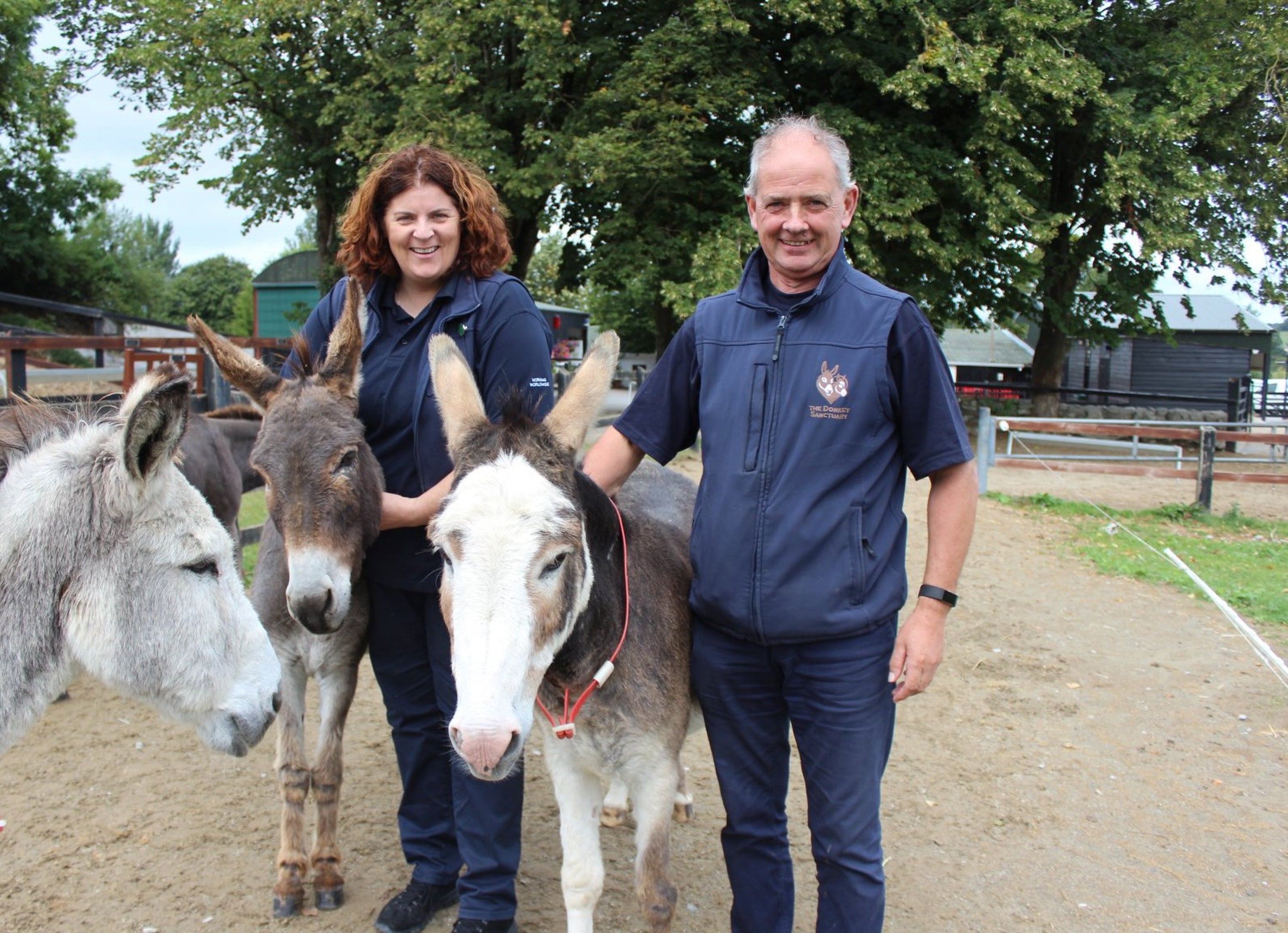Donkey charity ‘bursting at the seams’ as number in need of rescue grows
Donkey Sanctuary Ireland warned that the crisis is getting worse.

Your support helps us to tell the story
From reproductive rights to climate change to Big Tech, The Independent is on the ground when the story is developing. Whether it's investigating the financials of Elon Musk's pro-Trump PAC or producing our latest documentary, 'The A Word', which shines a light on the American women fighting for reproductive rights, we know how important it is to parse out the facts from the messaging.
At such a critical moment in US history, we need reporters on the ground. Your donation allows us to keep sending journalists to speak to both sides of the story.
The Independent is trusted by Americans across the entire political spectrum. And unlike many other quality news outlets, we choose not to lock Americans out of our reporting and analysis with paywalls. We believe quality journalism should be available to everyone, paid for by those who can afford it.
Your support makes all the difference.The number of donkeys requiring to be rescued is escalating in Ireland, leaving an animal charity “bursting at the seams”.
Donkey Sanctuary Ireland warned that the crisis is getting worse, and said it can now only take in animals in exceptional cases.
The equine charity is caring for more than 1,800 donkeys around Ireland, with 1,200 donkeys on its own farms and 650 in “guardian” homes.
Donkey Sanctuary Ireland country manager Laura Foster said the number of donkeys that need to be rescued and cared for has reached unsustainable levels.
“We don’t want 1,800 donkeys in our care. It’s not a good position to be in. They’re wonderful animals but it’s just such a shame that we’re needed at that scale,” she said.
The Cork-based organisation has been involved in rescuing and rehoming donkeys for decades.
It is an Irish subsidiary of the UK’s parent charity, the Donkey Sanctuary, which is a global organisation.
The donkey charity has been in Ireland since 1987, and has four farms in Cork one of which is open to the public.
The charity’s operating costs amounts to around four million euro a year.
We really don't have any more space for more donkeys unless they meet exceptional criteria
It relies heavily on public donations, government funding and support from its parent charity.
Ms Foster said its government funding will go towards community-based welfare work because its sanctuaries are full.
“We really don’t have any more space for more donkeys unless they meet exceptional criteria,” she added.
“We are bursting at the seams now.
“We’ve rescued and taken donkeys into our care that have really just suffered as a result of a lack of awareness about what good donkey welfare looks like and how donkeys need to be looked after.
“They are not animals that are suited to the Irish climate. They’ve evolved from very dry, arid, desert conditions.
“So their hooves are poor, their coats aren’t waterproof – they’re really not suited for damp, soggy, muddy, rainy weather and yet they have obviously been synonymous with Ireland, particularly in pre-agricultural automation.
“Donkeys were used heavily in agriculture in Ireland, particularly on the west coast.
“As we are full, most of our work now is focused on dealing with donkeys in the community, helping owners to understand the importance of hoof care, shelter, the right kind of feeding, dentistry, helping to understand donkey behaviour so they can recognise when a donkey might be in pain.
“Donkeys are very, very stoic animals so they don’t exhibit pain as readily as say a horse might. So it’s often quite difficult to know when your donkey has a problem.”
She said that donkeys are companion animals and should not be on their own.
The charity’s teams work in communities to help find new homes for the donkeys.
“They usually bond with one or two other donkeys and you should never really be taking in one donkey or rehoming one donkey,” she added.
“We do see a lot of unplanned breeding. I think there’s a tradition of owning donkeys in Ireland because of the the history and the heritage of donkeys playing such a part in rural life and in rural agriculture.”
Among the problems the charity comes across are donkeys with long hooves and no shelter.
Ms Foster also warned people against buying donkeys that are advertised as free and said the charity offers foster programmes for those who want to care for a donkey.
She also appealed for donations from the public to help deal with the number of donkeys that need care.